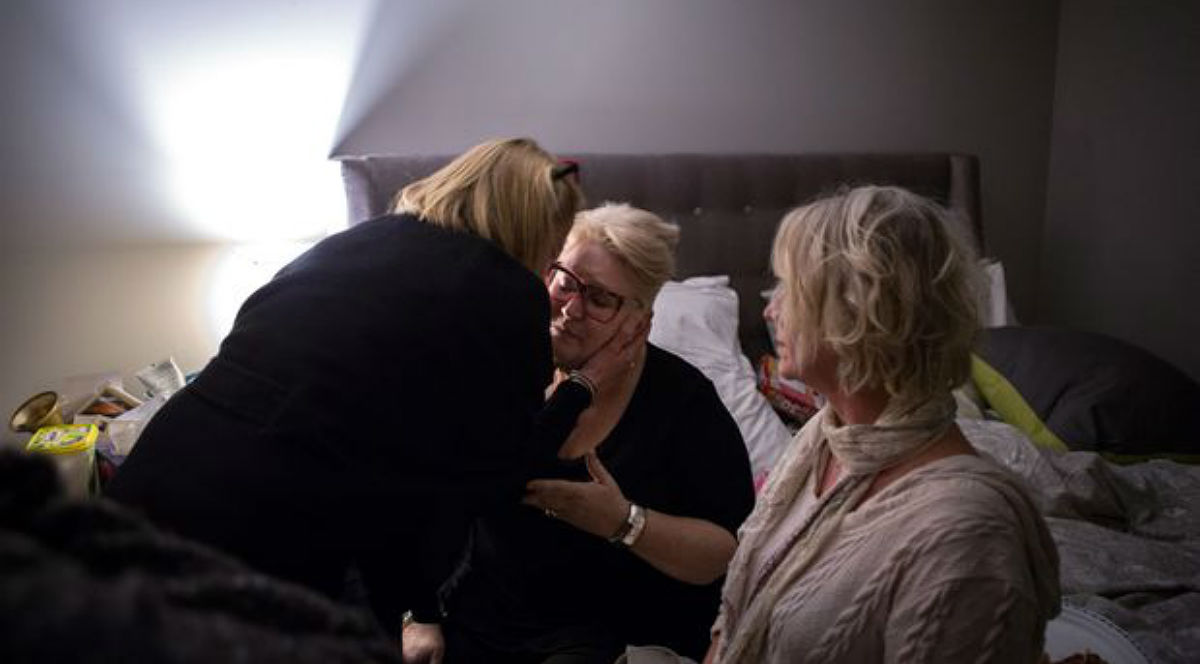
Will Canada continue to ban advance directives?
Woman uses her euthanasia death to lobby for change
Friends bid Audrey Parker good-bye / Chris Donovan, Globe and Mail
Audrey Parker, a 57-year-old Canadian living in Halifax, Nova Scotia, was euthanised on November 1. She suffered from an aggressive breast cancer which had spread to her bones and the lining of her brain. She would have preferred to die after Christmas and New Year, but she feared that that might have lost competence by then – and under Canada’s euthanasia legislation, only competent patients can request euthanasia.
Ms Parker used her dilemma to advocate for a change in the law to permit advance directives for incompetent patients. “People like me are dying earlier than necessary because of this poorly thought out law,” Parker said in a statement released by Dying with Dignity Canada (DWDC). “Once someone goes through the rigorous legal and medical consent process this should be enough. Double consent does not protect patients. It hurts us.”
“Our lawmakers have a duty to act to ensure that no one else has to face the same cruel choice that Audrey did at the end of her life,” said the head of DWDC. “Unless they act now, many more Canadians will be forced to die earlier than they would like to as a result of this unjust, inhumane rule.”
The Federal justice minister, Jody Wilson-Raybould, says that the government has no intention of amending the Medical Aid in Dying legislation to permit advance directives. However, as bioethicist Margaret Somerville points out, it is possible that courts will rule that a ban on advance directives for assisted suicide and euthanasia violates Canadians’ right to life.
The case which triggered the Supreme Court’s decision to permit euthanasia could be a precedent for advance directives. In Carter v Canada, the court held that a ban on assisted suicide was a breach of Gloria Taylor’s right to life in section 7 of the Canadian Charter of Rights and Freedoms and therefore unconstitutional. It reached this paradoxical conclusion by reasoning that Taylor’s life would be shortened because she would have to commit suicide before she became incompetent, rather than waiting and dying with euthanasia. “In short, the Supreme Court converted the ‘right to life’ to a ‘right to death through PAS-E’,” Somerville says.
Creative commons
https://www.bioedge.org/images/2008images/FB_audrey_parker.jpg
advance directives
canada
euthanasia
